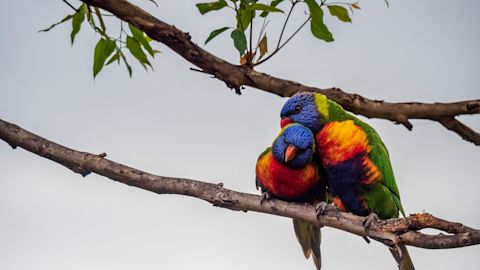Heatwaves and hot days can be a challenging time for all of us, including our wildlife. Here are some tips so you can help local wildlife stay cool and protected too.
1. Leave water out
Bowls of water left around your garden are a really simple and effective way to help wildlife close to your home. Place a shallow bowl or dish of water outside, ideally near a shrub or bush. Be sure to change the water at least once a day and keep the bowl clean. Use plastic or ceramic dishes not metal, as metal will get too hot.
Top tip: When using a large dish, put sticks or rocks inside to help smaller creatures get in and out.
2. Make your garden a safe space for wildlife
Keeping your pets indoors gives them respite from the heat and helps wildlife to access water and shade safely and undisturbed.
3. Look out for heat-distressed animals
If you spot nocturnal animals such as possums out during the day, animals that live in the trees on the ground or any animals visibly panting or looking confused, you’re probably witnessing a heat-distressed animal that needs help.
For animals you find like this, wrap them loosely in a towel and put them in a cardboard box in a quiet and cool place. Offer water, but not food, and contact Sydney Wildlife or WIRES as soon as you can.
Also spritzing the animal with room temperature water can help to keep the animal cool.
Find out more about helping different types of heat-stressed animals.
Be aware that on extremely hot days wildlife organisations may be really busy. You may want to contact your local vet for additional support.
Ongoing care
Trees and shrubs are a vital sanctuary for wildlife from the heat and sun. Making your outside spaces home to lots of them is a great way to create shelter for wildlife. You may also want to place some water feeders in your trees for bats, birds and other tree dwellers.
How we’re helping
We create shelter and habitat by regularly planting trees and shrubs in our parks and supporting urban bush regeneration. We’re also constantly reviewing our urban design to provide wildlife with more access to water and shade.
Published 6 December 2023, updated 2 December 2024



